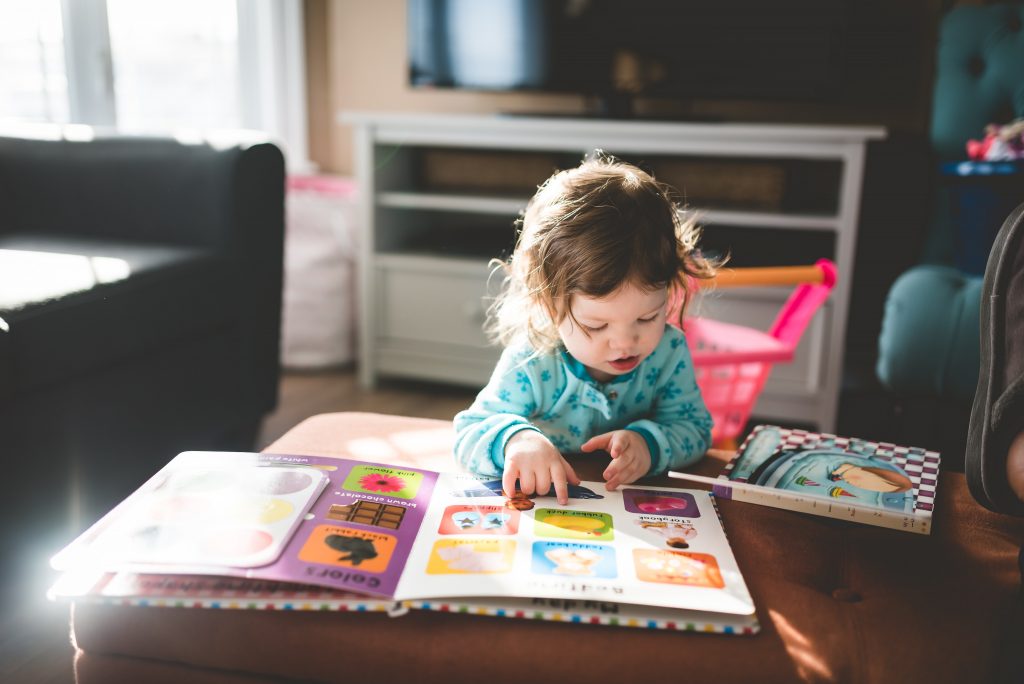By: Karissa Arce
This is one of the common questions I get from parents – “When can I start teaching my child to read?” “When is my child going to read smoothly?” “Why is my child having a hard time reading?” And I am not going to lie, this brings a whole lot of stress to some parents for various reasons and the most common one is this: because they don’t want their child to be left behind.
First of all, there are developmental milestones per age. Not all children are able to “tick” the boxes and that is totally fine (unless there is a special case then that needs intervention from specialists). These milestones serve as a guide on what activities we can do with the children to help them achieve those milestones. Second, and this is something you have to keep in mind: when a child is not yet ready, they will not be able to grasp the concept of reading. I kid you not, I had students who literally cannot identify even the letters of their name at the beginning of the school year, then eventually, once it all made sense to them, they were able to read simple sentences.
I don’t really teach reading the traditional way where they have to memorize the alphabet, name each and every letter in order, memorize and so on, NO. I provide exposure for them. I provide activities for them to be familiar with the letters and the letter sound and I just take every possible opportunity to connect it to daily activities. It is not that stressful for them, and they get to enjoy it while they are learning.
So, to answer that question of “when”, I’d say you can start as early as when they are in your womb. Read them stories every now and then. There are scientific studies that show reading to your baby even if they are still in the womb promotes brain activity.
Normally, I give parents some tips on how they can help their children learn how to read at home. Here are some useful guides that you can practice with your child.
Expectations. This is very important. Set realistic expectations. Do not get frustrated if your child cannot remember things easily. Sometimes, they need to see it being applied in different situations in order for them to grasp what you are teaching them. Please keep in mind that rushing your children to read will not make them “better”. Reading is supposed to be fun, not stressful nor is it a race. Reading without developing comprehension is basically just memorization.
Teach orientation. How do we read? We start from the top going to the bottom. Then as we go down, there are rows of words and we start reading the words from left to right. For beginners this is something that they need to learn in order for them to understand how to start reading. The next time you read them a story, run through how you will be reading the words – you will start from the top and per line as you go down, whenever you finish one line you start from the left going to the right.
Read to them regularly. Children who are being read to on a regular basis have higher word absorption. They can also recognize words faster because they have regular exposure. Protip: whenever you read, point to the word that you are reading. This will help them associate the sound you are making to what the word looks like. Anything that you read to them, be it a label of a food or a sign on the wall, as much as possible, point to the word. Because even if they don’t yet know the names of those letters or how to phonetically read them, if they see it often, they will be able to “sight read” that word.
Letter and sound association. One time, I was eating a burger for lunch while looking after some children. One of them said “Ysa, why are you eating a burger for lunch? Oh wait! Burger starts with letter B!” *Then made the /b/ sound* Did the child stop there? Nope. He tried to create the letter /b/ using his food. Was that enough? Still no. He continued to look around for objects that start with letter /b/. When you teach it naturally and integrate it in an actual situation, there is a higher chance that children will be interested and will absorb the concept more. Just remember, do not overdo it. This child ended up not finishing his lunch because he was too engrossed or maybe he just didn’t like his broccoli. (well, would you look at that, broccoli starts with letter /b/ too!)
The concept of reading or being able to read is different when it comes to children. We should not expect them to read like how adults read. That being said, we should not also force them at a very young age to read like adults. It is essential that while we are giving them exposure to literacy, we are also working on their comprehension. Again, reading without comprehension is basically just memorization. Oh, and don’t worry about your child being “left behind” in reading. They can catch up eventually, they just need a good motivation to start and positive support/encouragement from the people around them.




